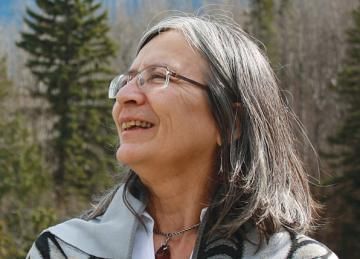
An equal world is an enabled world.
That’s the theme the United Nations has chosen for its International Women’s Day campaign, and it will also frame the discussions at the upcoming Feminist Legal Studies Queen’s (FLSQ) 2020 conference, March 6-7 in Robert Sutherland Hall.
The annual conference unites scholars, students, activists, lawyers and policy-makers for two days of discussions around equality, justice, identity and legal pluralism.
The conference seeks to address the range of issues arising from various global policy instruments designed to eradicate intersecting and multiple forms of discrimination that disproportionately disadvantage racialized, Indigenous, low-income, disabled, migrant, non-urban and segregated persons, particularly those disadvantaged by gender and identity intersectionalities.
This year’s agenda specifically focuses on Indigenous rights as well as climate action.
“We have emphasized submissions that speak ‘truth to power,’ address Truth and Reconciliation Commission recommendations and commitments to promote appropriate cultural competency, and advance the study of Aboriginal people and the law, the rights of Indigenous peoples, treaties and Aboriginal rights, Indigenous law, Aboriginal-Crown relations, and Indigenous knowledges, learnings and truths,” say Professors Bita Amani and Kathleen Lahey, Co-Directors of FLSQ.
Headlining the FLSQ conference is Professor Val Napoleon, Law Foundation Professor of Aboriginal Justice and Governance at the University of Victoria, and Queen’s University 2019-2020 Principal’s Development Fund Visiting Scholar, delivering the keynote lecture: “Indigenous Women Talking: The Work of Indigenous Feminisms in the World.”
Napoleon is a national expert in Indigenous law and her talk will examine what Indigenous feminisms can teach us as we move ahead in considering relationships in society, Indigenous law, and through Indigenous knowledges.
“In hosting Dr. Napoleon as our speaker, we hope to take a close look at how Indigenous issues are being addressed by universities and educational institutions, and specifically by law schools,” Lahey says.
Lahey and Amani hope this year’s conference will add considerably to the learning and discussions of Indigenous and sustainability legal issues, both nationally and internationally, while also providing Queen’s students and the broader Kingston community access to a vibrant and diverse set of reputable speakers.
“We are excited to offer yet another fantastic program to advance important discussions towards more equal relations in law and society,” Amani says. “Our speakers this year will cover a range of issues in addressing the intersectionalities of inequality, including poverty, race, sexuality, and religious and spiritual beliefs, alienation, representation, exclusion and inclusion through diverse critical lenses. We also have speakers from the Office of the Chief Information Officer interested in engaging participants in discussion towards more inclusive open government initiatives.”
To learn more about the program and to register for the conference, visit the FLSQ website.
By Phil Gaudreau